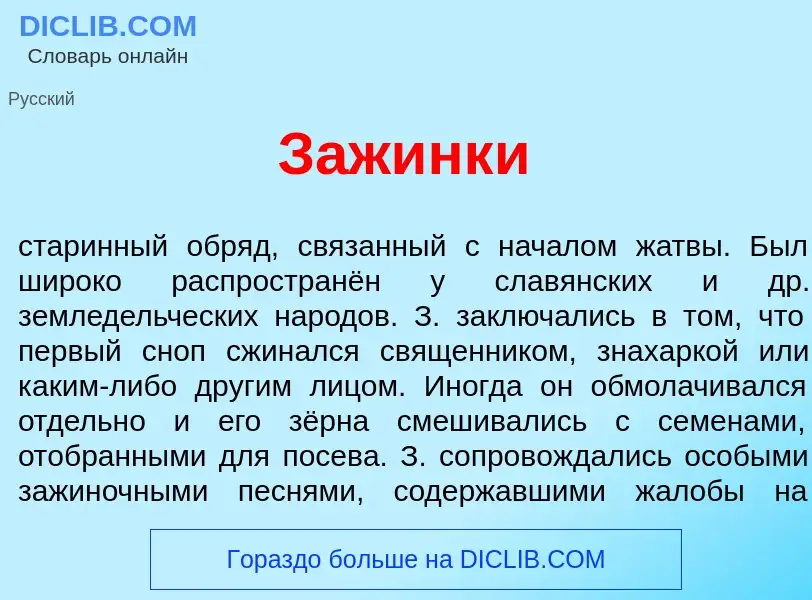Enter a word or phrase in any language 👆
Language:
Translation and analysis of words by ChatGPT artificial intelligence
On this page you can get a detailed analysis of a word or phrase, produced by the best artificial intelligence technology to date:
- how the word is used
- frequency of use
- it is used more often in oral or written speech
- word translation options
- usage examples (several phrases with translation)
- etymology
What (who) is Зажинки - definition
Зажинки; Прокопьев день; Прокопий-жатвенник; Летняя казанская
Зажинки
старинный обряд, связанный с началом жатвы. Был широко распространён у славянских и др. земледельческих народов. З. заключались в том, что первый сноп сжинался священником, знахаркой или каким-либо другим лицом. Иногда он обмолачивался отдельно и его зёрна смешивались с семенами, отобранными для посева. З. сопровождались особыми зажиночными песнями, содержавшими жалобы на тяжести труда и обращения к богу с просьбой о помощи.
зажинки
мн. местн.
1) Начало жатвы.
2) Обряд празднования начала жатвы.
1) Начало жатвы.
2) Обряд празднования начала жатвы.
ЗАЖИНКИ
обряды, связанные с началом жатвы у славян.
Wikipedia
Казанская летняя

Каза́нская ле́тняя — день в народном календаре восточных славян, приходящийся на 8 (21) июля.
Examples of use of Зажинки
1. В архитектурно- этнографическом музее "Хохловка" пройдет праздник "Нового хлеба". В Кудымкаре зрители увидят шоу костров "Огни Иньвы", фестиваль коми- пермяцкой национальной кухни "Вкусный хлеб", а в селе Архангельском - праздник первого снопа - "зажинки". Этот праздник относится к земледельческому культу и в старые времена проводился повсеместно у славянских и финно-угорских народов, занятых выращиванием хлеба.


